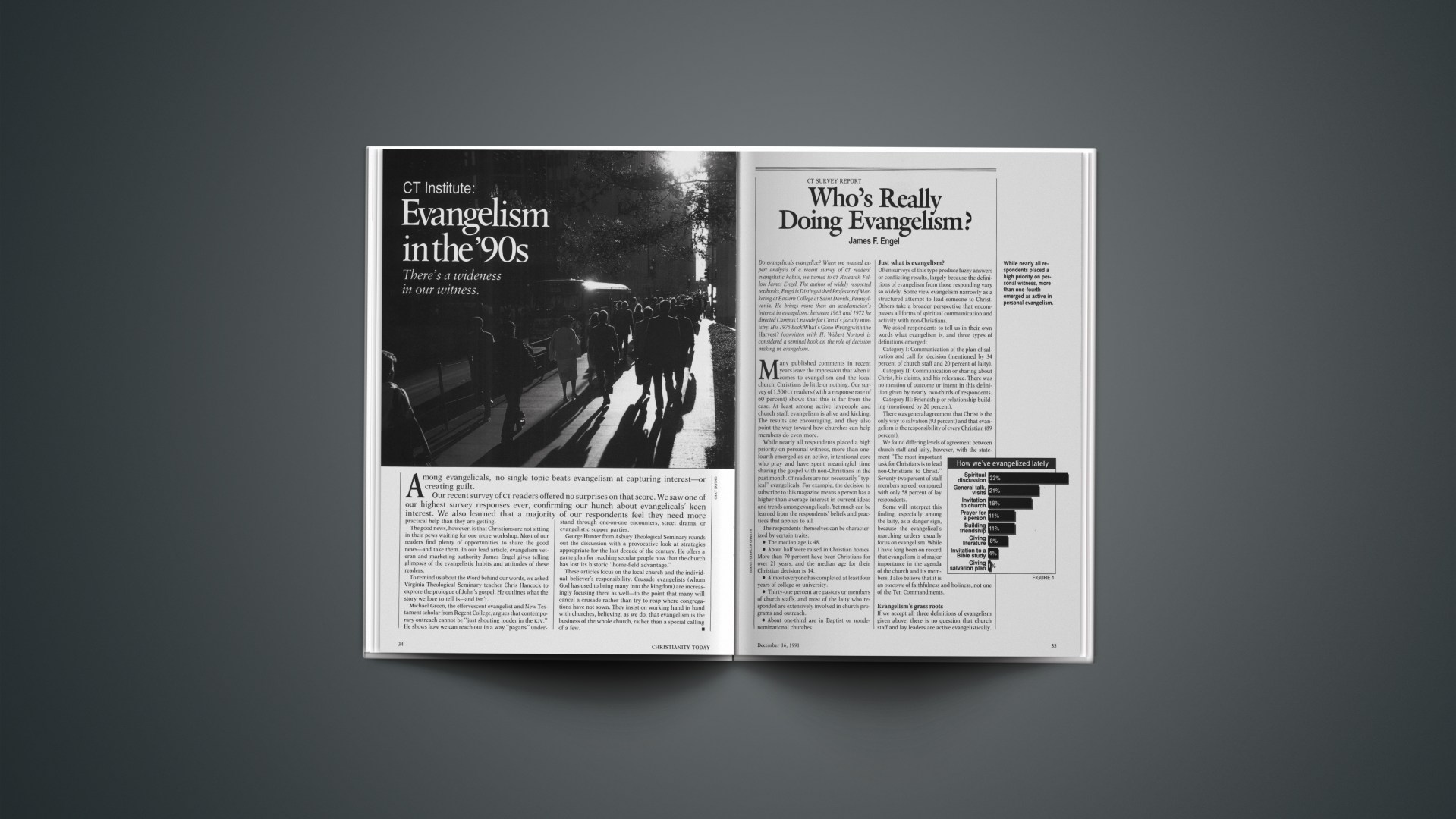Among evangelicals, no single topic beats evangelism at capturing interest—or creating guilt.
Our recent survey of CT readers offered no surprises on that score. We saw one of our highest survey responses ever, confirming our hunch about evangelicals’ keen interest. We also learned that a majority of our respondents feel they need more practical help than they are getting.
The good news, however, is that Christians are not sitting in their pews waiting for one more workshop. Most of our readers find plenty of opportunities to share the good news—and take them. In our lead article, evangelism veteran and marketing authority James Engel gives telling glimpses of the evangelistic habits and attitudes of these readers.
To remind us about the Word behind our words, we asked Virginia Theological Seminary teacher Chris Hancock to explore the prologue of John’s gospel. He outlines what the story we love to tell is—and isn’t.
Michael Green, the effervescent evangelist and New Testament scholar from Regent College, argues that contemporary outreach cannot be “just shouting louder in the KJV.” He shows how we can reach out in a way “pagans” understand through one-on-one encounters, street drama, or evangelistic supper parties.
George Hunter from Asbury Theological Seminary rounds out the discussion with a provocative look at strategies appropriate for the last decade of the century. He offers a game plan for reaching secular people now that the church has lost its historic “home-field advantage.”
These articles focus on the local church and the individual believer’s responsibility. Crusade evangelists (whom God has used to bring many into the kingdom) are increasingly focusing there as well—to the point that many will cancel a crusade rather than try to reap where congregations have not sown. They insist on working hand in hand with churches, believing, as we do, that evangelism is the business of the whole church, rather than a special calling of a few.










